70's Live Radio Stations
Radio Stations
- 70 80 Disco Funk ModernSoul e Boogie
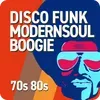
- 70s 80s Disco Funk ModernSoul Boogie

- Antenne Vorarlberg 70er Hits

- Bay FM 100.7

- Bayern 1 Schwaben (128k - New Stream 9/2020)

- Big L 2

- Blown

- Blu FM (León) - 92.3 FM - XHLG-FM - Promomedios - León, GT

- Carabineros de Chile Radio

- CLASSIC HITS RADIO

- CLASSIC HITS RADIO

- CLASSIC HITS RADIO

- CLASSIC HITS RADIO 70 80 DiscoFunk ModernSoul Boogie

- CLASSIC HITS RADIO Italia

- Disco Fever on Dash

- Éxtasis Digital (Ciudad de México) - Online - Radiorama - Ciudad de México

- Éxtasis Digital (Cuernavaca) - 107.7 FM - XHASM-FM - Radiorama - Cuernava, MO

- Éxtasis Digital (Cuernavaca) - 107.7 FM - XHASM-FM - Radiorama - Cuernavaca, MO

- Éxtasis Digital (Guadalajara) - 105.9 FM - XHQJ-FM - Radiorama - Guadalajara, JCÉxtasis Digital (Guadalajara) - 105.9 FM - XHQJ-FM...
- Éxtasis Digital (Guadalajara) - 105.9 FM - XHQJ-FM - Radiorama - Guadalajara, JC

- Éxtasis Digital (León) - 95.9 FM - XHGTO-FM - Radiorama - León, GT

- Éxtasis Digital (Parral) - 94.9 FM - XHSB-FM - Radiorama - Parral, ChihuahuaÉxtasis Digital (Parral) - 94.9 FM - XHSB-FM - Rad...
- Éxtasis Digital (Piedras Negras) - 105.5 FM - XHRE-FM - RCG Media / Radiorama - Piedras Negras, CO

- Éxtasis Digital (Poza Rica) - 105.9 FM - XHCOV-FM - Radiorama / Radio Resultados - Poza Rica, VE

- Éxtasis Digital (Tuxtla) - 103.5 FM - XHTUG-FM - Grupo Radio Comunicación - Tuxtla Gutiérrez, CS

- Folk Alley Classic

- Hollywood 101.3 RosarioHollywood 101.3 Rosario
- Joe 70s && 80s

- KDUN AM 1030

- Mar FM (Veracruz) - 99.7 FM - XHPB-FM - Grupo FM Multimedios - Veracruz, VE

- Nation 70s

- Nostalgie NL

- Nostalgie VlaanderenNostalgie Vlaanderen
- Nostalgie+

- NPO Radio 5

- NPO Radio 5

- Offshore Music StationOffshore Music Station
- OLDIE ANTENNE

- OUI FM ROCK 70's
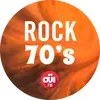
- Radio Carabineros de ChileRadio Carabineros de Chile
- Radio Caroline 319 GoldRadio Caroline 319 Gold
- Radio IRadio I
- Radio Monique 963 GoldRadio Monique 963 Gold
- Radio Seabreeze
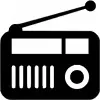
- Radio Volami nel Cuore

- Radiostorm - At Work 104

- RDMIX 70'S GOLDEN HITS
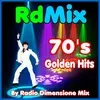
- RDMIX ITALIAN VINTAGE 70 80 90
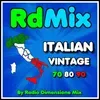
- SFLINY Classic RockSFLINY Classic Rock
- Star 104 Classic R&&BStar 104 Classic R&&B
Choose a Genre
The 1970s: A Musical Revolution on the Airwaves
The 1970s was a decade marked by transformation in the music world, and radio stations played a pivotal role in bringing these changes into the homes of listeners around the globe. As the industry evolved, new genres emerged, and existing ones underwent significant shifts. The radio stations of the 70s became a vibrant and eclectic space, offering a rich variety of sounds that captured the spirit of an era defined by cultural change.
Disco Fever: The Soundtrack of a Decade
One of the most iconic and influential musical movements of the 1970s was disco music. With its infectious, danceable beats, funky basslines, and catchy melodies, disco became more than just a genre—it was a cultural phenomenon. Radio stations across the world embraced the rise of disco, broadcasting hits from artists like Donna Summer, the Bee Gees, and Chic. Disco dominated the airwaves, and nightclubs (or "discotheques") became hotspots for people looking to groove to the music that defined a generation.
The glittering, upbeat nature of disco reflected the era's hedonistic spirit, while its bold, energetic rhythm made it the perfect companion to the growing club culture. The 70s saw not only an explosion in disco music but also the rise of some of the most famous tracks and iconic moments in music history, many of which are still celebrated today.
Rock ‘n’ Roll’s Evolution: A New Era of Sound
While disco took over the dance floors, rock music continued to be a dominant force on the radio in the 70s. The decade was marked by the rise of legendary bands like Led Zeppelin, The Rolling Stones, and Pink Floyd, whose albums and live performances became the stuff of legend. The 70s also saw the emergence of subgenres like hard rock, heavy metal, and progressive rock, further diversifying the soundscape of the time.
With electrifying guitar riffs, soaring vocals, and anthemic lyrics, rock music remained a cornerstone of the radio experience. Stations catering to rock enthusiasts often played these bold, rebellious sounds non-stop, keeping listeners connected to the music that was both an escape and a reflection of the societal changes of the time.
The Rise of Folk and Singer-Songwriters
The 1970s was also a defining moment for folk music, as singer-songwriters gained prominence with their introspective lyrics and acoustic sound. Artists like Joni Mitchell, James Taylor, and Bob Dylan became synonymous with the movement, offering a contrast to the loud, high-energy music of rock and disco. Their songs often explored themes of love, politics, and social issues, resonating deeply with listeners during a time of great cultural and political upheaval.
Folk music provided a voice for those who sought a more intimate, reflective connection to the world around them. It was the perfect antidote to the glitz and glamour of disco and the power of rock, and it became a fixture on radio stations that sought to offer something for every type of listener.
Soul, R&B, and Funk: Grooving to the Beat
The 70s was also a golden era for soul, R&B, and funk music. The soulful melodies of Motown artists like Marvin Gaye, Stevie Wonder, and Diana Ross dominated the airwaves, their smooth vocals and heartfelt lyrics capturing the hearts of millions. Funk music, with its irresistible rhythms and infectious grooves, also found its place on radio stations, with the legendary James Brown, Parliament-Funkadelic, and Sly and the Family Stone leading the charge.
Soul and funk music provided a powerful and dynamic contrast to the more polished pop sounds of disco, offering listeners a deeper, more rhythmic experience. These genres reflected both the struggles and triumphs of the African American community and were instrumental in shaping the musical landscape of the 70s.
Jazz: The Sophisticated Sound of the 70s
Though it was perhaps less mainstream, jazz music continued to thrive in the 1970s, particularly among more sophisticated and niche audiences. With jazz legends like Miles Davis, John Coltrane, and Herbie Hancock releasing groundbreaking albums, radio stations that specialized in jazz played a critical role in preserving and advancing the genre. These artists pushed the boundaries of jazz, blending it with elements of rock, funk, and electronic music, creating a fusion that was both innovative and captivating.
The 70s marked a period of transformation for jazz, as musicians began to experiment with new sounds and techniques, taking the genre to new heights. Radio stations that catered to jazz lovers helped to sustain this dynamic evolution and bring the music of these virtuosos to a wider audience.
A Decade of Musical Diversity
The music of the 1970s was incredibly diverse, and radio stations from across the world reflected this diversity. Whether you were a fan of the funky beats of disco, the raw power of rock, the soulful grooves of R&B, or the introspective sound of folk, the radio stations of the 70s offered something for everyone. These stations became vital cultural hubs, providing a soundtrack to the rapidly changing world around them.
The impact of the 70s on popular music cannot be overstated. Many of the genres that gained prominence during this decade continue to influence artists and shape the music we hear today. The 70s was a decade that pushed boundaries, embraced new sounds, and forever changed the course of music history.
The 1970s was a decade marked by transformation in the music world, and radio stations played a pivotal role in bringing these changes into the homes of listeners around the globe. As the industry evolved, new genres emerged, and existing ones underwent significant shifts. The radio stations of the 70s became a vibrant and eclectic space, offering a rich variety of sounds that captured the spirit of an era defined by cultural change.
Disco Fever: The Soundtrack of a Decade
One of the most iconic and influential musical movements of the 1970s was disco music. With its infectious, danceable beats, funky basslines, and catchy melodies, disco became more than just a genre—it was a cultural phenomenon. Radio stations across the world embraced the rise of disco, broadcasting hits from artists like Donna Summer, the Bee Gees, and Chic. Disco dominated the airwaves, and nightclubs (or "discotheques") became hotspots for people looking to groove to the music that defined a generation.
The glittering, upbeat nature of disco reflected the era's hedonistic spirit, while its bold, energetic rhythm made it the perfect companion to the growing club culture. The 70s saw not only an explosion in disco music but also the rise of some of the most famous tracks and iconic moments in music history, many of which are still celebrated today.
Rock ‘n’ Roll’s Evolution: A New Era of Sound
While disco took over the dance floors, rock music continued to be a dominant force on the radio in the 70s. The decade was marked by the rise of legendary bands like Led Zeppelin, The Rolling Stones, and Pink Floyd, whose albums and live performances became the stuff of legend. The 70s also saw the emergence of subgenres like hard rock, heavy metal, and progressive rock, further diversifying the soundscape of the time.
With electrifying guitar riffs, soaring vocals, and anthemic lyrics, rock music remained a cornerstone of the radio experience. Stations catering to rock enthusiasts often played these bold, rebellious sounds non-stop, keeping listeners connected to the music that was both an escape and a reflection of the societal changes of the time.
The Rise of Folk and Singer-Songwriters
The 1970s was also a defining moment for folk music, as singer-songwriters gained prominence with their introspective lyrics and acoustic sound. Artists like Joni Mitchell, James Taylor, and Bob Dylan became synonymous with the movement, offering a contrast to the loud, high-energy music of rock and disco. Their songs often explored themes of love, politics, and social issues, resonating deeply with listeners during a time of great cultural and political upheaval.
Folk music provided a voice for those who sought a more intimate, reflective connection to the world around them. It was the perfect antidote to the glitz and glamour of disco and the power of rock, and it became a fixture on radio stations that sought to offer something for every type of listener.
Soul, R&B, and Funk: Grooving to the Beat
The 70s was also a golden era for soul, R&B, and funk music. The soulful melodies of Motown artists like Marvin Gaye, Stevie Wonder, and Diana Ross dominated the airwaves, their smooth vocals and heartfelt lyrics capturing the hearts of millions. Funk music, with its irresistible rhythms and infectious grooves, also found its place on radio stations, with the legendary James Brown, Parliament-Funkadelic, and Sly and the Family Stone leading the charge.
Soul and funk music provided a powerful and dynamic contrast to the more polished pop sounds of disco, offering listeners a deeper, more rhythmic experience. These genres reflected both the struggles and triumphs of the African American community and were instrumental in shaping the musical landscape of the 70s.
Jazz: The Sophisticated Sound of the 70s
Though it was perhaps less mainstream, jazz music continued to thrive in the 1970s, particularly among more sophisticated and niche audiences. With jazz legends like Miles Davis, John Coltrane, and Herbie Hancock releasing groundbreaking albums, radio stations that specialized in jazz played a critical role in preserving and advancing the genre. These artists pushed the boundaries of jazz, blending it with elements of rock, funk, and electronic music, creating a fusion that was both innovative and captivating.
The 70s marked a period of transformation for jazz, as musicians began to experiment with new sounds and techniques, taking the genre to new heights. Radio stations that catered to jazz lovers helped to sustain this dynamic evolution and bring the music of these virtuosos to a wider audience.
A Decade of Musical Diversity
The music of the 1970s was incredibly diverse, and radio stations from across the world reflected this diversity. Whether you were a fan of the funky beats of disco, the raw power of rock, the soulful grooves of R&B, or the introspective sound of folk, the radio stations of the 70s offered something for everyone. These stations became vital cultural hubs, providing a soundtrack to the rapidly changing world around them.
The impact of the 70s on popular music cannot be overstated. Many of the genres that gained prominence during this decade continue to influence artists and shape the music we hear today. The 70s was a decade that pushed boundaries, embraced new sounds, and forever changed the course of music history.